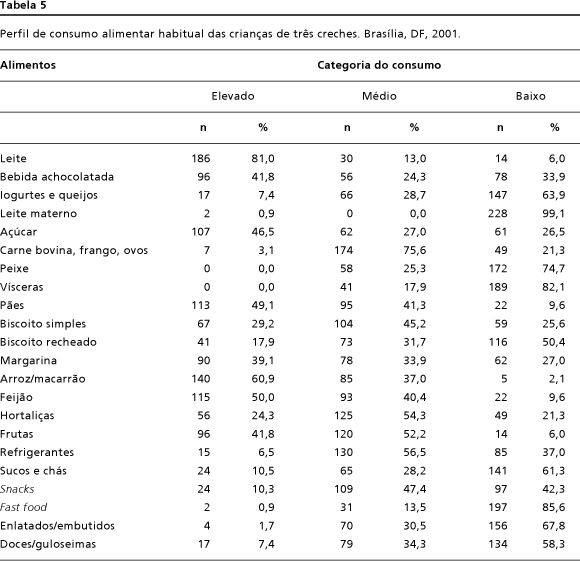OBJECTIVES: to assess nutritional status of children in three nursing schools of Brasília, Brazil. METHODS: in a cross-sectional design, a sample of 230 children (87.5% of 263) was evaluated between March and December of 2001. Interview was used to gather family socio-economic status. Children nutritional status was classified according to WHO using NCHS tables. Food intake was obtained by direct weighed food, 24h-recall and food frequency questionnaire. RESULTS: there were a 6.1% overweight and 4.8% stunting. Meals served in the nursing schools provided adequate energy percentage distribution for macronutrients. There were significant differences between children under and over 24 months old for total energy, protein, iron, calcium, and vitamin C. There was a high intake of dairy products, rice/pasta, legumes, table sugar, bread and margarine; medium intake of fruits, vegetables, red meat, poultry, eggs and cookies; and low intake o fish, offals, juices, tea and human milk. A precocious introduction of snacks, soft drinks, fast foods, canned and processed meat and sweet was observed. CONCLUSIONS: there was a high prevalence of excessive weight, which is consistent with the observed food intake pattern. It is concluded that educational and health interventions are needed to prevent non-transmissible chronic diseases and to improve life quality.
Food consumption; Child preschool; Nutritional status





